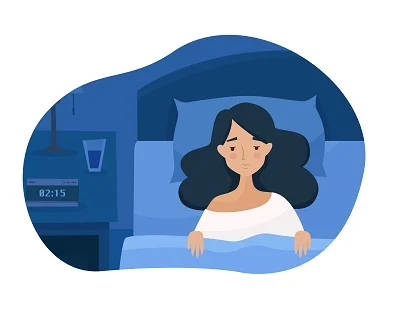If you find that you’re not sleeping enough—you’re not alone. According to the Center for Disease Control (CDC), about 35% of American adults skimp on sleep; and this rate is even higher in African Americans and other minority groups. This is an important public health concern because getting a good night’s rest is essential for physical and mental wellbeing.
There are many factors that can interfere with our ability to fall and stay asleep, but stress is a big culprit. When stress is moderate and short term, it can be beneficial. It can motivate us to work harder, increase our focus, and improve our performance. However, when stress is traumatic or chronic, it can have the opposite effect and lead to lasting health problems.
Typically, when we experience a stressor, cortisol and other stress hormones are released into the body. These hormones create a burst of energy that prepares the body to fight or flee from a dangerous situation. Once the stressor has passed, theses hormones subside, and the body begins to relax again.
The body’s response to a stressor is a basic survival mechanism. It’s completely normal to have trouble falling asleep during periods of stress. You wouldn’t last very long in the jungle if you dozed off with a pride of lions nearby. However, many of the stressors we face today, such as financial problems, relationship conflicts, or even the ‘fear of the unknown’ can trigger this same fight-or-flight response. Overtime this can keep you on high alert and interfere with your sleep quality.
Now if that wasn’t enough, here’s the kicker—a lack of sleep can also worsen your stress. The science tells us that after a night of poor sleep, people report higher ratings of tension, stress, and anxiety. But fear not, there are several behaviors backed by sleep science that can help you break free from the stress-sleep cycle.


Recent Comments